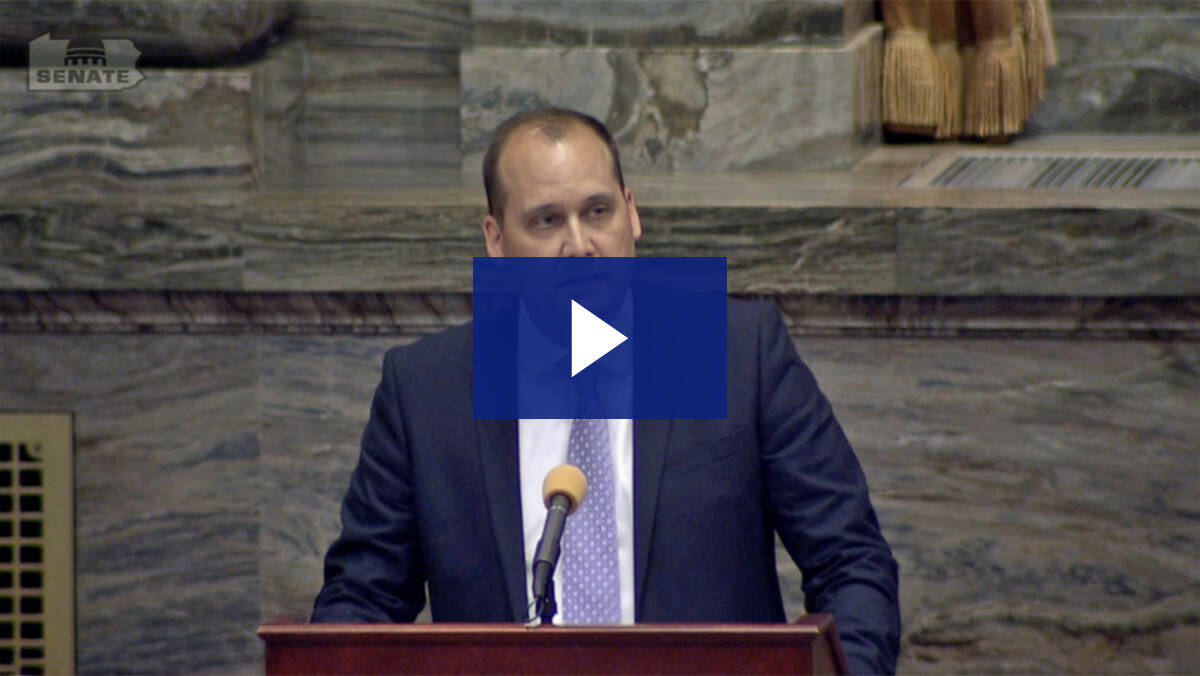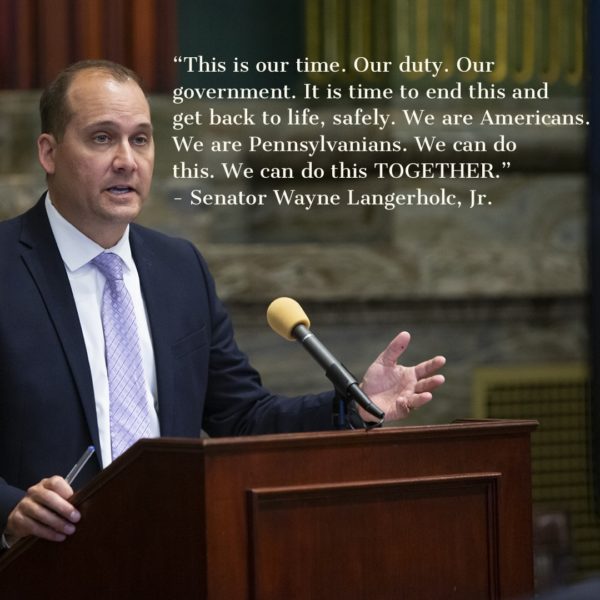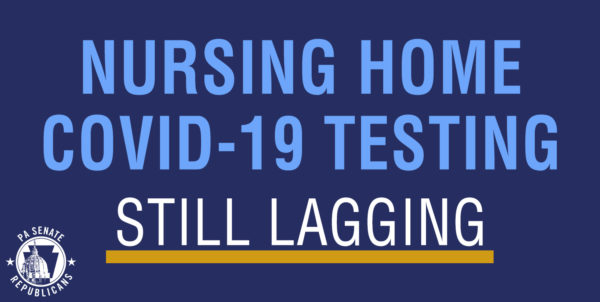
|
||||
|
In This Update:
Senate Approves Resolution to Free PA from Governor’s COVID-19 ShutdownOn Tuesday the Senate passed House Resolution 836 to terminate the Governor’s COVID-19 disaster emergency proclamation. Governor Wolf’s extended lockdown of Pennsylvania is hurting families and doing irreparable harm to employers. This week, I voted in favor of a resolution that would end the governor’s executive order to shut down businesses statewide. House Resolution 836 would end the governor’s disaster declaration and allow all companies in Pennsylvania to operate safely and consumers to use their services without the need for a business waiver. The measure legally compels Governor Wolf to rescind his emergency order; he does not have the option to sign or veto it. Because the governor has refused to carry out his mandatory duty to act, the Senate filed in the state’s Commonwealth Court urging the court to “command” the governor to terminate the declaration in accordance with the law. Ending the disaster declaration will not jeopardize Pennsylvania’s ability to access federal funding or respond to any possible resurgence of COVID-19. It would only prevent the governor from continuing to suspend state laws, spend money indiscriminately, and keep businesses shut down indefinitely. Although many of us supported Governor Wolf’s actions to slow the spread of the virus in March, his prolonged business shutdowns are clearly doing more harm than good today. Unfortunately, as long as he continues to refuse to rescind his order, all of the existing executive orders, color codes, etc. from the governor remain in effect until the matter is settled by the courts. I will continue to do all I can to put an end to the shutdown and get Pennsylvania back to work safely in the days and weeks ahead. Bill Would Require Legislative Approval of Extended Emergency Declarations
Future emergency disaster declarations could not be extended beyond 30 days without legislative approval under a proposed Constitutional Amendment approved by the Senate today, according to Senator Wayne Langerholc, Jr. (R-35), who supported the measure. Under current law, an emergency declaration from the governor can last up to 90 days and can be renewed indefinitely. Senate Bill 1166 would limit the length of an emergency declaration to 30 days unless approved for a longer duration by the General Assembly. The bill also would amend the Pennsylvania Constitution to prohibit the denial of equal rights based on race or ethnicity. The change would bring the Pennsylvania Constitution into line with the equal protections afforded by the U.S. Constitution. Limiting the length of an emergency declaration would ensure greater cooperation between all branches of government during an emergency and restore the system of checks and balances that Pennsylvania’s government was founded upon. The need for this legislation has been highlighted by Governor Wolf’s refusal to work with the General Assembly during the COVID-19 public health emergency. The governor has used the disaster declaration for nearly 100 days to suspend state statutes, spend taxpayer dollars without legislative approval, and keep millions of Pennsylvanians from earning a living through his business shutdown orders. Because Senate Bill 1166 would require an amendment to the Pennsylvania Constitution, the bill must be passed by the Senate and House of Representatives in two consecutive legislative sessions and be approved by voters via referendum. The Senate approved a resolution on Tuesday to end the disaster declaration issued by Governor Wolf on March 6 and renewed on June 3 for another 90 days. The concurrent resolution allows all businesses to reopen statewide. Unacceptable: COVID-19 Testing for Long-Term Care Facilities Not Required to be Completed until July 24
Nursing homes and other long-term care facilities have been one of the hardest-hit populations during the COVID-19 pandemic. After a Senate hearing in April exposed gross inadequacies in how the Wolf Administration handled these facilities during the public health crisis, the administration pledged to require testing of all long-term care staff and residents. However, new testing procedures and guidelines from the Department of Health do not require such testing until July 24. With more than 70% of Pennsylvania’s COVID-19 deaths occurring in these locations, such a delay is unacceptable. I supported passage of a new law two weeks ago that dedicated more than $690 million of Pennsylvania’s share of money from the Coronavirus Aid, Relief, and Economic Security (CARES) Act to support long-term care facilities. The administration must fix its irresponsible mishandling of our most vulnerable citizens immediately. The new Department of Health’s requirements will include a baseline test of residents and staff at all facilities and weekly testing at facilities that have a positive test. More information this available in a FAQ. Future PUA Payments to be Paid by Debit Card
Benefit payments from the Pandemic Unemployment Assistance (PUA) program were temporarily switched to paper checks last week in order to identify and reduce numerous instances of fraud. Beginning soon, all payments will be issued via US Bank ReliaCards. The special debit cards will be mailed this week to claimants who do not already have one. Claimants can still receive a paper check in they specifically request one. These payments include the additional $600 a week from the Federal Pandemic Unemployment Compensation (FPUC) program. |
||||
|
||||




Want to change how you receive these emails? 2026 © Senate of Pennsylvania | https://senatorlangerholc.com | Privacy Policy |



